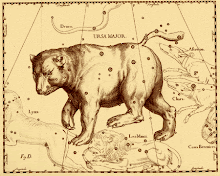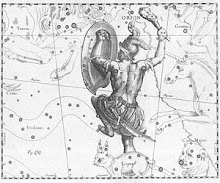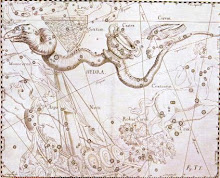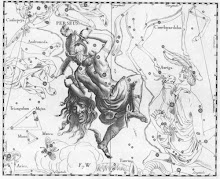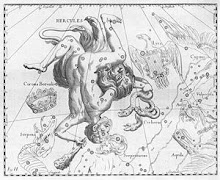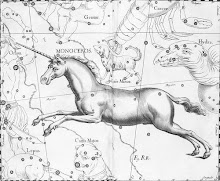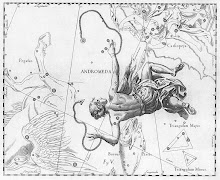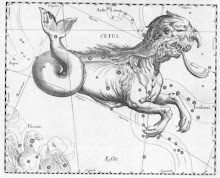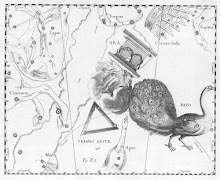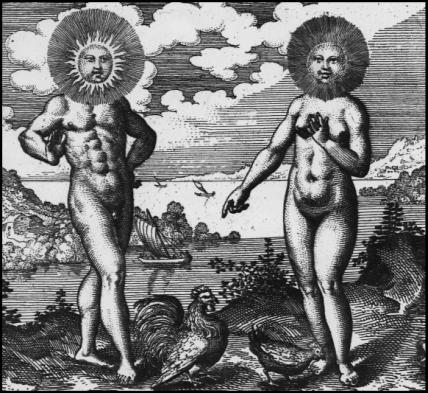Affichage des articles dont le libellé est MALORY Le Morte d'Arthur (Book XVIIII). Afficher tous les articles
Affichage des articles dont le libellé est MALORY Le Morte d'Arthur (Book XVIIII). Afficher tous les articles
THOMAS MALORY Le Morte d'Arthur (Book XVIIII)
BOOK XVIIII
CHAPTER I. How Queen Guenever rode a-Maying with certain knights of the Round Table and clad all in green.
SO it befell in the month of May, Queen Guenever called unto her knights of the Table Round; and she gave them warning that early upon the morrow she would ride a-Maying into woods and fields beside Westminster. And I warn you that there be none of you but that he be well horsed, and that ye all be clothed in green, outher in silk outher in cloth; and I shall bring with me ten ladies, and every knight shall have a lady behind him, and every knight shall have a squire and two yeomen; and I will that ye all be well horsed. So they made them ready in the freshest manner. And these were the names of the knights: Sir Kay le Seneschal, Sir Agravaine, Sir Brandiles, Sir Sagramore le Desirous, Sir Dodinas le Savage, Sir Ozanna le Cure Hardy, Sir Ladinas of the Forest Savage, Sir Persant of Inde, Sir Ironside, that was called the Knight of the Red Launds, and Sir Pelleas, the lover; and these ten knights made them ready in the freshest manner to ride with the queen. And so upon the morn they took their horses with the queen, and rode a-Maying in woods and meadows as it pleased them, in great joy and delights; for the queen had cast to have been again with King Arthur at the furthest by ten of the clock, and so was that time her purpose.
Then there was a knight that hight Meliagrance, and he was son unto King Bagdemagus, and this knight had at that time a castle of the gift of King Arthur within seven mile of Westminster. And this knight, Sir Meliagrance, loved passing well Queen Guenever, and so had he done long and many years. And the book saith he had lain in await for to steal away the queen, but evermore he forbare for because of Sir Launcelot; for in no wise he would meddle with the queen an Sir Launcelot were in her company, outher else an he were near-hand her. And that time was such a custom, the queen rode never without a great fellowship of men of arms about her, and they were many good knights, and the most part were young men that would have worship; and they were called the Queen's Knights, and never in no battle, tournament, nor jousts, they bare none of them no manner of knowledging of their own arms, but plain white shields, and thereby they were called the Queen's Knights. And then when it happed any of them to be of great worship by his noble deeds, then at the next Feast of Pentecost, if there were any slain or dead, as there was none year that there failed but some were dead, then was there chosen in his stead that was dead the most men of worship, that were called the Queen's Knights. And thus they came up all first, or they were renowned men of worship, both Sir Launcelot and all the remnant of them.
But this knight, Sir Meliagrance, had espied the queen well and her purpose, and how Sir Launcelot was not with her, and how she had no men of arms with her but the ten noble knights all arrayed in green for Maying. Then he purveyed him a twenty men of arms and an hundred archers for to destroy the queen and her knights, for he thought that time was best season to take the queen.
CHAPTER II. How Sir Meliagrance took the queen and her knights, which were sore hurt in fighting
SO as the queen had Mayed and all her knights, all were bedashed with herbs, mosses and flowers, in the best manner and freshest. Right so came out of a wood Sir Meliagrance with an eight score men well harnessed, as they should fight in a battle of arrest, and bade the queen and her knights abide, for maugre their heads they should abide. Traitor knight, said Queen Guenever, what cast thou for to do? Wilt thou shame thyself? Bethink thee how thou art a king's son, and knight of the Table Round, and thou to be about to dishonour the noble king that made thee knight; thou shamest all knighthood and thyself, and me, I let thee wit, shalt thou never shame, for I had liefer cut mine own throat in twain rather than thou shouldest dishonour me. As for all this language, said Sir Meliagrance, be it as it be may, for wit you well, madam, I have loved you many a year, and never or now could I get you at such an advantage as I do now, and therefore I will take you as I find you.
Then spake all the ten noble knights at once and said: Sir Meliagrance, wit thou well ye are about to jeopard your worship to dishonour, and also ye cast to jeopard our persons howbeit we be unarmed. Ye have us at a great avail, for it seemeth by you that ye have laid watch upon us; but rather than ye should put the queen to a shame and us all, we had as lief to depart from our lives, for an if we other ways did, we were shamed for ever. Then said Sir Meliagrance: Dress you as well ye can, and keep the queen. Then the ten knights of the Table Round drew their swords, and the other let run at them with their spears, and the ten knights manly abode them, and smote away their spears that no spear did them none harm. Then they lashed together with swords, and anon Sir Kay, Sir Sagramore, Sir Agravaine, Sir Dodinas, Sir Ladinas, and Sir Ozanna were smitten to the earth with grimly wounds. Then Sir Brandiles, and Sir Persant, Sir Ironside, Sir Pelleas fought long, and they were sore wounded, for these ten knights, or ever they were laid to the ground, slew forty men of the boldest and the best of them.
So when the queen saw her knights thus dolefully wounded, and needs must be slain at the last, then for pity and sorrow she cried Sir Meliagrance: Slay not my noble knights, and I will go with thee upon this covenant, that thou save them, and suffer them not to be no more hurt, with this, that they be led with me wheresomever thou leadest me, for I will rather slay myself than I will go with thee, unless that these my noble knights may be in my presence. Madam, said Meliagrance, for your sake they shall be led with you into mine own castle, with that ye will be ruled, and ride with me. Then the queen prayed the four knights to leave their fighting, and she and they would not depart. Madam, said Sir Pelleas, we will do as ye do, for as for me I take no force of my life nor death. For as the French book saith, Sir Pelleas gave such buffets there that none armour might hold him.
CHAPTER III. How Sir Launcelot had word how the queen was taken, and how Sir Meliagrance laid a bushment for Launcelot
THEN by the queen's commandment they left battle, and dressed the wounded knights on horseback, some sitting, some overthwart their horses, that it was pity to behold them. And then Sir Meliagrance charged the queen and all her knights that none of all her fellowship should depart from her; for full sore he dread Sir Launcelot du Lake, lest he should have any knowledging. All this espied the queen, and privily she called unto her a child of her chamber that was swiftly horsed, to whom she said: Go thou, when thou seest thy time, and bear this ring unto Sir Launcelot du Lake, and pray him as he loveth me that he will see me and rescue me, if ever he will have joy of me; and spare not thy horse, said the queen, neither for water, neither for land. So the child espied his time, and lightly he took his horse with the spurs, and departed as fast as he might. And when Sir Meliagrance saw him so flee, he understood that it was by the queen's commandment for to warn Sir Launcelot. Then they that were best horsed chased him and shot at him, but from them all the child went suddenly. And then Sir Meliagrance said to the queen: Madam, ye are about to betray me, but I shall ordain for Sir Launcelot that he shall not come lightly at you. And then he rode with her, and they all, to his castle, in all the haste that they might. And by the way Sir Meliagrance laid in an embushment the best archers that he might get in his country, to the number of thirty, to await upon Sir Launcelot, charging them that if they saw such a manner of knight come by the way upon a white horse, that in any wise they slay his horse, but in no manner of wise have not ado with him bodily, for he is over-hardy to be overcome.
So this was done, and they were come to his castle, but in no wise the queen would never let none of the ten knights and her ladies out of her sight, but always they were in her presence; for the book saith, Sir Meliagrance durst make no masteries, for dread of Sir Launcelot, insomuch he deemed that he had warning. So when the child was departed from the fellowship of Sir Meliagrance, within a while he came to Westminster, and anon he found Sir Launcelot. And when he had told his message, and delivered him the queen's ring: Alas, said Sir Launcelot, now I am shamed for ever, unless that I may rescue that noble lady from dishonour. Then eagerly he asked his armour; and ever the child told Sir Launcelot how the ten knights fought marvellously, and how Sir Pelleas, and Sir Ironside, and Sir Brandiles, and Sir Persant of Inde, fought strongly, but namely Sir Pelleas, there might none withstand him; and how they all fought till at the last they were laid to the earth; and then the queen made appointment for to save their lives, and go with Sir Meliagrance.
Alas, said Sir Launcelot, that most noble lady, that she should be so destroyed; I had liefer, said Sir Launcelot, than all France, that I had been there well armed. So when Sir Launcelot was armed and upon his horse, he prayed the child of the queen's chamber to warn Sir Lavaine how suddenly he was departed, and for what cause. And pray him as he loveth me, that he will hie him after me, and that he stint not until he come to the castle where Sir Meliagrance abideth, or dwelleth; for there, said Sir Launcelot, he shall hear of me an I am a man living, and rescue the queen and the ten knights the which he traitorously hath taken, and that shall I prove upon his head, and all them that hold with him.
CHAPTER IV. How Sir Launcelot's horse was slain, and how Sir Launcelot rode in a cart for to rescue the queen
THEN Sir Launcelot rode as fast as he might, and the book saith he took the water at Westminster Bridge, and made his horse to swim over Thames unto Lambeth. And then within a while he came to the same place thereas the ten noble knights fought with Sir Meliagrance. And then Sir Launcelot followed the track until that he came to a wood, and there was a straight way, and there the thirty archers bade Sir Launcelot turn again, and follow no longer that track. What commandment have ye thereto, said Sir Launcelot, to cause me that am a knight of the Round Table to leave my right way? This way shalt thou leave, other-else thou shalt go it on thy foot, for wit thou well thy horse shall be slain. That is little mastery, said Sir Launcelot, to slay mine horse; but as for myself, when my horse is slain, I give right nought for you, not an ye were five hundred more. So then they shot Sir Launcelot's horse, and smote him with many arrows; and then Sir Launcelot avoided his horse, and went on foot; but there were so many ditches and hedges betwixt them and him that he might not meddle with none of them. Alas for shame, said Launcelot, that ever one knight should betray another knight; but it is an old saw, A good man is never in danger but when he is in the danger of a coward. Then Sir Launcelot went a while, and then he was foul cumbered of his armour, his shield, and his spear, and all that longed unto him. Wit ye well he was full sore annoyed, and full loath he was for to leave anything that longed unto him, for he dread sore the treason of Sir Meliagrance.
Then by fortune there came by him a chariot that came thither for to fetch wood. Say me, carter, said Sir Launcelot, what shall I give thee to suffer me to leap into thy chariot, and that thou bring me unto a castle within this two mile? Thou shalt not come within my chariot, said the carter, for I am sent for to fetch wood for my lord, Sir Meliagrance. With him would I speak. Thou shalt not go with me, said the carter. Then Sir Launcelot leapt to him, and gave him such a buffet that he fell to the earth stark dead. Then the other carter, his fellow, was afeard, and weened to have gone the same way; and then he cried: Fair lord, save my life, and I shall bring you where ye will. Then I charge thee, said Sir Launcelot, that thou drive me and this chariot even unto Sir Meliagrance's gate. Leap up into the chariot, said the carter, and ye shall be there anon. So the carter drove on a great wallop, and Sir Launcelot's horse followed the chariot, with more than a forty arrows broad and rough in him.
And more than an hour and an half Dame Guenever was awaiting in a bay window with her ladies, and espied an armed knight standing in a chariot. See, madam, said a lady, where rideth in a chariot a goodly armed knight; I suppose he rideth unto hanging. Where? said the queen. Then she espied by his shield that he was there himself, Sir Launcelot du Lake. And then she was ware where came his horse ever after that chariot, and ever he trod his guts and his paunch under his feet. Alas, said the queen, now I see well and prove, that well is him that hath a trusty friend. Ha, ha, most noble knight, said Queen Guenever, I see well thou art hard bestead when thou ridest in a chariot. Then she rebuked that lady that likened Sir Launcelot to ride in a chariot to hanging. It was foul mouthed, said the queen, and evil likened, so for to liken the most noble knight of the world unto such a shameful death. O Jesu defend him and keep him, said the queen, from all mischievous end. By this was Sir Launcelot come to the gates of that castle, and there he descended down, and cried, that all the castle rang of it: Where art thou, false traitor, Sir Meliagrance, and knight of the Table Round? now come forth here, thou traitor knight, thou and thy fellowship with thee; for here I am, Sir Launcelot du Lake, that shall fight with you. And therewithal he bare the gate wide open upon the porter, and smote him under his ear with his gauntlet, that his neck brast a-sunder.
CHAPTER V. How Sir Meliagrance required forgiveness of the queen, and how she appeased Sir Launcelot; and other matters
WHEN Sir Meliagrance heard that Sir Launcelot was there he ran unto Queen Guenever, and fell upon his knee, and said: Mercy, madam, now I put me wholly into your grace. What aileth you now? said Queen Guenever; forsooth I might well wit some good knight would revenge me, though my lord Arthur wist not of this your work. Madam, said Sir Meliagrance, all this that is amiss on my part shall be amended right as yourself will devise, and wholly I put me in your grace. What would ye that I did? said the queen. I would no more, said Meliagrance, but that ye would take all in your own hands, and that ye will rule my lord Sir Launcelot; and such cheer as may be made him in this poor castle ye and he shall have until to-morn, and then may ye and all they return unto Westminster; and my body and all that I have I shall put in your rule. Ye say well, said the queen, and better is peace than ever war, and the less noise the more is my worship.
Then the queen and her ladies went down unto the knight, Sir Launcelot, that stood wroth out of measure in the inner court, to abide battle; and ever he bade: Thou traitor knight come forth. Then the queen came to him and said: Sir Launcelot, why be ye so moved? Ha, madam, said Sir Launcelot, why ask ye me that question? Meseemeth, said Sir Launcelot, ye ought to be more wroth than I am, for ye have the hurt and the dishonour, for wit ye well, madam, my hurt is but little for the killing of a mare's son, but the despite grieveth me much more than all my hurt. Truly, said the queen, ye say truth; but heartily I thank you, said the queen, but ye must come in with me peaceably, for all thing is put in my hand, and all that is evil shall be for the best, for the knight full sore repenteth him of the misadventure that is befallen him. Madam, said Sir Launcelot, sith it is so that ye been accorded with him, as for me I may not be again it, howbeit Sir Meliagrance hath done full shamefully to me, and cowardly. Ah madam, said Sir Launcelot, an I had wist ye would have been so soon accorded with him I would not have made such haste unto you. Why say ye so, said the queen, do ye forthink yourself of your good deeds? Wit you well, said the queen, I accorded never unto him for favour nor love that I had unto him, but for to lay down every shameful noise. Madam, said Sir Launcelot, ye understand full well I was never willing nor glad of shameful slander nor noise; and there is neither king, queen, nor knight, that beareth the life, except my lord King Arthur, and you, madam, should let me, but I should make Sir Meliagrance's heart full cold or ever I departed from hence. That wot I well, said the queen, but what will ye more? Ye shall have all thing ruled as ye list to have it. Madam, said Sir Launcelot, so ye be pleased I care not, as for my part ye shall soon please.
Right so the queen took Sir Launcelot by the bare hand, for he had put off his gauntlet, and so she went with him till her chamber; and then she commanded him to be unarmed. And then Sir Launcelot asked where were the ten knights that were wounded sore; so she showed them unto Sir Launcelot, and there they made great joy of the coming of him, and Sir Launcelot made great dole of their hurts, and bewailed them greatly. And there Sir Launcelot told them how cowardly and traitorly Meliagrance set archers to slay his horse, and how he was fain to put himself in a chariot. Thus they complained everych to other; and full fain they would have been revenged, but they peaced themselves because of the queen. Then, as the French book saith, Sir Launcelot was called many a day after le Chevaler du Chariot, and did many deeds, and great adventures he had. And so leave we of this tale le Chevaler du Chariot, and turn we to this tale.
So Sir Launcelot had great cheer with the queen, and then Sir Launcelot made a promise with the queen that the same night Sir Launcelot should come to a window outward toward a garden; and that window was y-barred with iron, and there Sir Launcelot promised to meet her when all folks were asleep. So then came Sir Lavaine driving to the gates, crying: Where is my lord, Sir Launcelot du Lake? Then was he sent for, and when Sir Lavaine saw Sir Launcelot, he said: My lord, I found well how ye were hard bestead, for I have found your horse that was slain with arrows. As for that, said Sir Launcelot, I pray you, Sir Lavaine, speak ye of other matters, and let ye this pass, and we shall right it another time when we best may.
CHAPTER VI. How Sir Launcelot came in the night to the queen and lay with her, and how Sir Meliagrance appeached the queen of treason
THEN the knights that were hurt were searched, and soft salves were laid to their wounds; and so it passed on till supper time, and all the cheer that might be made them there was done unto the queen and all her knights. Then when season was, they went unto their chambers, but in no wise the queen would not suffer the wounded knights to be from her, but that they were laid within draughts by her chamber, upon beds and pillows, that she herself might see to them, that they wanted nothing.
So when Sir Launcelot was in his chamber that was assigned unto him, he called unto him Sir Lavaine, and told him that night he must go speak with his lady, Dame Guenever. Sir, said Sir Lavaine, let me go with you an it please you, for I dread me sore of the treason of Sir Meliagrance. Nay, said Sir Launcelot, I thank you, but I will have nobody with me. Then Sir Launcelot took his sword in his hand, and privily went to a place where he had espied a ladder to-forehand, and that he took under his arm, and bare it through the garden, and set it up to the window, and there anon the queen was ready to meet him. And then they made either to other their complaints of many divers things, and then Sir Launcelot wished that he might have come into her. Wit ye well, said the queen, I would as fain as ye, that ye might come in to me. Would ye, madam, said Sir Launcelot, with your heart that I were with you? Yea, truly, said the queen. Now shall I prove my might, said Sir Launcelot, for your love; and then he set his hands upon the bars of iron, and he pulled at them with such a might that he brast them clean out of the stone walls, and therewithal one of the bars of iron cut the brawn of his hands throughout to the bone; and then he leapt into the chamber to the queen. Make ye no noise, said the queen, for my wounded knights lie here fast by me. So, to pass upon this tale, Sir Launcelot went unto bed with the queen, and he took no force of his hurt hand, but took his pleasaunce and his liking until it was in the dawning of the day; and wit ye well he slept not but watched, and when he saw his time that he might tarry no longer he took his leave and departed at the window, and put it together as well as he might again, and so departed unto his own chamber; and there he told Sir Lavaine how he was hurt. Then Sir Lavaine dressed his hand and staunched it, and put upon it a glove, that it should not be espied; and so the queen lay long in her bed until it was nine of the clock.
Then Sir Meliagrance went to the queen's chamber, and found her ladies there ready clothed. Jesu mercy, said Sir Meliagrance, what aileth you, madam, that ye sleep thus long? And right therewithal he opened the curtain for to behold her; and then was he ware where she lay, and all the sheet and pillow was bebled with the blood of Sir Launcelot and of his hurt hand. When Sir Meliagrance espied that blood, then he deemed in her that she was false to the king, and that some of the wounded knights had lain by her all that night. Ah, madam, said Sir Meliagrance, now I have found you a false traitress unto my lord Arthur; for now I prove well it was not for nought that ye laid these wounded knights within the bounds of your chamber; therefore I will call you of treason before my lord, King Arthur. And now I have proved you, madam, with a shameful deed; and that they be all false, or some of them, I will make good, for a wounded knight this night hath lain by you. That is false, said the queen, and that I will report me unto them all. Then when the ten knights heard Sir Meliagrance's words, they spake all in one voice and said to Sir Meliagrance: Thou sayest falsely, and wrongfully puttest upon us such a deed, and that we will make good any of us; choose which thou list of us when we are whole of our wounds. Ye shall not, said Sir Meliagrance, away with your proud language, for here ye may all see, said Sir Meliagrance, that by the queen this night a wounded knight hath lain. Then were they all ashamed when they saw that blood; and wit you well Sir Meliagrance was passing glad that he had the queen at such an advantage, for he deemed by that to hide his treason. So with this rumour came in Sir Launcelot, and found them all at a great array.
CHAPTER VII. How Sir Launcelot answered for the queen, and waged battle against Sir Meliagrance; and how Sir Launcelot was taken in a trap
WHAT array is this? said Sir Launcelot. Then Sir Meliagrance told them what he had found, and showed them the queen's bed. Truly, said Sir Launcelot, ye did not your part nor knightly, to touch a queen's bed while it was drawn, and she lying therein; for I dare say my lord Arthur himself would not have displayed her curtains, she being within her bed, unless that it had pleased him to have lain down by her; and therefore ye have done unworshipfully and shamefully to yourself. I wot not what ye mean, said Sir Meliagrance, but well I am sure there hath one of her wounded knights lain by her this night, and therefore I will prove with my hands that she is a traitress unto my lord Arthur. Beware what ye do, said Launcelot, for an ye say so, an ye will prove it, it will be taken at your hands.
My lord, Sir Launcelot, said Sir Meliagrance, I rede you beware what ye do; for though ye are never so good a knight, as ye wot well ye are renowned the best knight of the world, yet should ye be advised to do battle in a wrong quarrel, for God will have a stroke in every battle. As for that, said Sir Launcelot, God is to be dread; but as to that I say nay plainly, that this night there lay none of these ten wounded knights with my lady Queen Guenever, and that will I prove with my hands, that ye say untruly in that now. Hold, said Sir Meliagrance, here is my glove that she is traitress unto my lord, King Arthur, and that this night one of the wounded knights lay with her. And I receive your glove, said Sir Launcelot. And so they were sealed with their signets, and delivered unto the ten knights. At what day shall we do battle together? said Sir Launcelot. This day ight days, said Sir Meliagrance, in the field beside Westminster. I am agreed, said Sir Launcelot. But now, said Sir Meliagrance, sithen it is so that we must fight together, I pray you, as ye be a noble knight, await me with no treason, nor none villainy the meanwhile, nor none for you. So God me help, said Sir Launcelot, ye shall right well wit I was never of no such conditions, for I report me to all knights that ever have known me, I fared never with no treason, nor I loved never the fellowship of no man that fared with treason. Then let us go to dinner, said Meliagrance, and after dinner ye and the queen and ye may ride all to Westminster. I will well, said Sir Launcelot.
Then Sir Meliagrance said to Sir Launcelot: Pleaseth it you to see the estures of this castle? With a good will, said Sir Launcelot. And then they went together from chamber to chamber, for Sir Launcelot dread no perils; for ever a man of worship and of prowess dreadeth least always perils, for they ween every man be as they be; but ever he that fareth with treason putteth oft a man in great danger. So it befell upon Sir Launcelot that no peril dread, as he went with Sir Meliagrance he trod on a trap and the board rolled, and there Sir Launcelot fell down more than ten fathom into a cave full of straw; and then Sir Meliagrance departed and made no fare as that he nist where he was.
And when Sir Launcelot was thus missed they marvelled where he was become; and then the queen and many of them deemed that he was departed as he was wont to do suddenly. For Sir Meliagrance made suddenly to put away aside Sir Lavaine's horse, that they might all understand that Sir Launcelot was departed suddenly. So it passed on till after dinner; and then Sir Lavaine would not stint until that he ordained litters for the wounded knights, that they might be laid in them; and so with the queen and them all, both ladies and gentlewomen and other, went unto Westminster; and there the knights told King Arthur how Meliagrance had appealed the queen of high treason, and how Sir Launcelot had received the glove of him: And this day eight days they shall do battle afore you. By my head, said King Arthur, I am afeard Sir Meliagrance hath taken upon him a great charge; but where is Sir Launcelot? said the king. Sir, said they all, we wot not where he is, but we deem he is ridden to some adventures, as he is ofttimes wont to do, for he hath Sir Lavaine's horse. Let him be, said the king, he will be founden, but if he be trapped with some treason.
CHAPTER VIII. How Sir Launcelot was delivered out of prison by a lady, and took a white courser and came for to keep his day
SO leave we Sir Launcelot lying within that cave in great pain; and every day there came a lady and brought him his meat and his drink, and wooed him, to have lain by him; and ever the noble knight, Sir Launcelot, said her nay. Sir Launcelot, said she, ye are not wise, for ye may never out of this prison, but if ye have my help; and also your lady, Queen Guenever, shall be brent in your default, unless that ye be there at the day of battle. God defend, said Sir Launcelot, that she should be brent in my default; and if it be so, said Sir Launcelot, that I may not be there, it shall be well understanded, both at the king and at the queen, and with all men of worship, that I am dead, sick, outher in prison. For all men that know me will say for me that I am in some evil case an I be not there that day; and well I wot there is some good knight either of my blood, or some other that loveth me, that will take my quarrel in hand; and therefore, said Sir Launcelot, wit ye well ye shall not fear me; and if there were no more women in all this land but ye, I will not have ado with you. Then art thou shamed, said the lady, and destroyed for ever. As for world's shame, Jesu defend me, and as for my distress, it is welcome whatsoever it be that God sendeth me.
So she came to him the same day that the battle should be, and said: Sir Launcelot, methinketh ye are too hard-hearted, but wouldest thou but kiss me once I should deliver thee, and thine armour, and the best horse that is within Sir Meliagrance's stable. As for to kiss you, said Sir Launcelot, I may do that and lose no worship; and wit ye well an I understood there were any disworship for to kiss you I would not do it. Then he kissed her, and then she gat him, and brought him to his armour. And when he was armed, she brought him to a stable, where stood twelve good coursers, and bade him choose the best. Then Sir Launcelot looked upon a white courser the which liked him best; and anon he commanded the keepers fast to saddle him with the best saddle of war that there was; and so it was done as he bade. Then gat he his spear in his hand, and his sword by his side, and commended the lady unto God, and said: Lady, for this good deed I shall do you service if ever it be in my power.
CHAPTER IX. How Sir Launcelot came the same time that Sir Meliagrance abode him in the field and dressed him to battle
NOW leave we Sir Launcelot wallop all that he might, and speak we of Queen Guenever that was brought to a fire to be brent; for Sir Meliagrance was sure, him thought, that Sir Launcelot should not be at that battle; therefore he ever cried upon King Arthur to do him justice, other-else bring forth Sir Launcelot du Lake. Then was the king and all the court full sore abashed and shamed that the queen should be brent in the default of Sir Launcelot. My lord Arthur, said Sir Lavaine, ye may understand that it is not well with my lord Sir Launcelot, for an he were alive, so he be not sick outher in prison, wit ye well he would be here; for never heard ye that ever he failed his part for whom he should do battle for. And therefore, said Sir Lavaine, my lord, King Arthur, I beseech you give me license to do battle here this day for my lord and master, and for to save my lady, the queen. Gramercy gentle Sir Lavaine, said King Arthur, for I dare say all that Sir Meliagrance putteth upon my lady the queen is wrong, for I have spoken with all the ten wounded knights, and there is not one of them, an he were whole and able to do battle, but he would prove upon Sir Meliagrance's body that it is false that he putteth upon my queen. So shall I, said Sir Lavaine, in the defence of my lord, Sir Launcelot, an ye will give me leave. Now I give you leave, said King Arthur, and do your best, for I dare well say there is some treason done to Sir Launcelot
Then was Sir Lavaine armed and horsed, and suddenly at the lists' end he rode to perform this battle; and right as the heralds should cry: Lesses les aler, right so came in Sir Launcelot driving with all the force of his horse. And then Arthur cried: Ho! and Abide! Then was Sir Launcelot called on horseback to-fore King Arthur, and there he told openly to-fore the king and all, how Sir Meliagrance had served him first to last. And when the king, and the queen, and all the lords, knew of the treason of Sir Meliagrance they were all ashamed on his behalf. Then was Queen Guenever sent for, and set by the king in great trust of her champion. And then there was no more else to say, but Sir Launcelot and Sir Meliagrance dressed them unto battle, and took their spears; and so they came together as thunder, and there Sir Launcelot bare him down quite over his horse's croup. And then Sir Launcelot alighted and dressed his shield on his shoulder, with his sword in his hand, and Sir Meliagrance in the same wise dressed him unto him, and there they smote many great strokes together; and at the last Sir Launcelot smote him such a buffet upon the helmet that he fell on the one side to the earth. And then he cried upon him aloud: Most noble knight, Sir Launcelot du Lake, save my life, for I yield me unto you, and I require you, as ye be a knight and fellow of the Table Round, slay me not, for I yield me as overcome; and whether I shall live or die I put me in the king's hands and yours.
Then Sir Launcelot wist not what to do, for he had had liefer than all the good of the world he might have been revenged upon Sir Meliagrance; and Sir Launcelot looked up to the Queen Guenever, if he might espy by any sign or countenance what she would have done. And then the queen wagged her head upon Sir Launcelot, as though she would say: Slay him. Full well knew Sir Launcelot by the wagging of her head that she would have him dead; then Sir Launcelot bade him rise for shame and perform that battle to the utterance. Nay, said Sir Meliagrance, I will never arise until ye take me as yolden and recreant. I shall proffer you large proffers, said Sir Launcelot, that is for to say, I shall unarm my head and my left quarter of my body, all that may be unarmed, and let bind my left hand behind me, so that it shall not help me, and right so I shall do battle with you. Then Sir Meliagrance started up upon his legs, and said on high: My lord Arthur, take heed to this proffer, for I will take it, and let him be disarmed and bounden according to his proffer. What say ye, said King Arthur unto Sir Launcelot, will ye abide by your proffer? Yea, my lord, said Sir Launcelot, I will never go from that I have once said.
Then the knights parters of the field disarmed Sir Launcelot, first his head, and sithen his left arm, and his left side, and they bound his left arm behind his back, without shield or anything, and then they were put together. Wit you well there was many a lady and knight marvelled that Sir Launcelot would jeopardy himself in such wise. Then Sir Meliagrance came with his sword all on high, and Sir Launcelot showed him openly his bare head and the bare left side; and when he weened to have smitten him upon the bare head, then lightly he avoided the left leg and the left side, and put his right hand and his sword to that stroke, and so put it on side with great sleight; and then with great force Sir Launcelot smote him on the helmet such a buffet that the stroke carved the head in two parts. Then there was no more to do, but he was drawn out of the field. And at the great instance of the knights of the Table Round, the king suffered him to be interred, and the mention made upon him, who slew him, and for what cause he was slain; and then the king and the queen made more of Sir Launcelot du Lake, and more he was cherished, than ever he was aforehand.
CHAPTER X. How Sir Urre came into Arthur's court for to be healed of his wounds, and how King Arthur would begin to handle him
THEN as the French book maketh mention, there was a good knight in the land of Hungary, his name was Sir Urre, and he was an adventurous knight, and in all places where he might hear of any deeds of worship there would he be. So it happened in Spain there was an earl's son, his name was Alphegus, and at a great tournament in Spain this Sir Urre, knight of Hungary, and Sir Alphegus of Spain encountered together for very envy; and so either undertook other to the utterance. And by fortune Sir Urre slew Sir Alphegus, the earl's son of Spain, but this knight that was slain had given Sir Urre, or ever he was slain, seven great wounds, three on the head, and four on his body and upon his left hand. And this Sir Alphegus had a mother, the which was a great sorceress; and she, for the despite of her son's death, wrought by her subtle crafts that Sir Urre should never be whole, but ever his wounds should one time fester and another time bleed, so that he should never be whole until the best knight of the world had searched his wounds; and thus she made her avaunt, wherethrough it was known that Sir Urre should never be whole.
Then his mother let make an horse litter, and put him therein under two palfreys; and then she took Sir Urre's sister with him, a full fair damosel, whose name was Felelolie; and then she took a page with him to keep their horses, and so they led Sir Urre through many countries. For as the French book saith, she led him so seven year through all lands christened, and never she could find no knight that might ease her son. So she came into Scotland and into the lands of England, and by fortune she came nigh the feast of Pentecost until King Arthur's court, that at that time was holden at Carlisle. And when she came there, then she made it openly to be known how that she was come into that land for to heal her son.
Then King Arthur let call that lady, and asked her the cause why she brought that hurt knight into that land. My most noble king, said that lady, wit you well I brought him hither for to be healed of his wounds, that of all this seven year he might not be whole. And then she told the king where he was wounded, and of whom; and how his mother had discovered in her pride how she had wrought that by enchantment, so that he should never be whole until the best knight of the world had searched his wounds. And so I have passed through all the lands christened to have him healed, except this land. And if I fail to heal him here in this land, I will never take more pain upon me, and that is pity, for he was a good knight, and of great nobleness. What is his name? said Arthur My good and gracious lord, she said, his name is Sir Urre of the Mount. In good time, said the king, and sith ye are come into this land, ye are right welcome; and wit you well here shall your son be healed, an ever any Christian man may heal him. And for to give all other men of worship courage, I myself will assay to handle your son, and so shall all the kings, dukes, and earls that be here present with me at this time; thereto will I command them, and well I wot they shall obey and do after my commandment. And wit you well, said King Arthur unto Urre's sister, I shall begin to handle him, and search unto my power, not presuming upon me that I am so worthy to heal your son by my deeds, but I will courage other men of worship to do as I will do. And then the king commanded all the kings, dukes, and earls, and all noble knights of the Round Table that were there that time present, to come into the meadow of Carlisle. And so at that time there were but an hundred and ten of the Round Table, for forty knights were that time away; and so here we must begin at King Arthur, as is kindly to begin at him that was the most man of worship that was christened at that time.
CHAPTER XI. How King Arthur handled Sir Urre, and after him many other knights of the Round Table
THEN King Arthur looked upon Sir Urre, and the king thought he was a full likely man when he was whole; and then King Arthur made him to be taken down off the litter and laid him upon the earth, and there was laid a cushion of gold that he should kneel upon. And then noble Arthur said: Fair knight, me repenteth of thy hurt, and for to courage all other noble knights I will pray thee softly to suffer me to handle your wounds. Most noble christened king, said Urre, do as ye list, for I am at the mercy of God, and at your commandment. So then Arthur softly handled him, and then some of his wounds renewed upon bleeding. Then the King Clarence of Northumberland searched, and it would not be. And then Sir Barant le Apres that was called the King with the Hundred Knights, he assayed and failed; and so did King Uriens of the land of Gore; so did King Anguish of Ireland; so did King Nentres of Garloth; so did King Carados of Scotland; so did the Duke Galahad, the haut prince; so did Constantine, that was Sir Carados' son of Cornwall; so did Duke Chaleins of Clarance; so did the Earl Ulbause; so did the Earl Lambaile; so did the Earl Aristause.
Then came in Sir Gawaine with his three sons, Sir Gingalin, Sir Florence, and Sir Lovel, these two were begotten upon Sir Brandiles' sister; and all they failed. Then came in Sir Agravaine, Sir Gaheris, Sir Mordred, and the good knight, Sir Gareth, that was of very knighthood worth all the brethren. So came knights of Launcelot's kin, but Sir Launcelot was not that time in the court, for he was that time upon his adventures. Then Sir Lionel, Sir Ector de Maris, Sir Bors de Ganis, Sir Blamore de Ganis, Sir Bleoberis de Ganis, Sir Gahalantine, Sir Galihodin, Sir Menaduke, Sir Villiars the Valiant, Sir Hebes le Renoumes. All these were of Sir Launcelot's kin, and all they failed. Then came in Sir Sagramore le Desirous, Sir Dodinas le Savage, Sir Dinadan, Sir Bruin le Noire, that Sir Kay named La Cote Male Taile, and Sir Kay le Seneschal, Sir Kay de Stranges, Sir Meliot de Logris, Sir Petipase of Winchelsea, Sir Galleron of Galway, Sir Melion of the Mountain, Sir Cardok, Sir Uwaine les Avoutres, and Sir Ozanna le Cure Hardy.
Then came in Sir Astamor, and Sir Gromere, Grummor's son, Sir Crosselm, Sir Servause le Breuse, that was called a passing strong knight, for as the book saith, the chief Lady of the Lake feasted Sir Launcelot and Servause le Breuse, and when she had feasted them both at sundry times she prayed them to give her a boon. And they granted it her. And then she prayed Sir Servause that he would promise her never to do battle against Sir Launcelot du Lake, and in the same wise she prayed Sir Launcelot never to do battle against Sir Servause, and so either promised her. For the French book saith, that Sir Servause had never courage nor lust to do battle against no man, but if it were against giants, and against dragons, and wild beasts. So we pass unto them that at the king's request made them all that were there at that high feast, as of the knights of the Table Round, for to search Sir Urre: to that intent the king did it, to wit which was the noblest knight among them.
Then came Sir Aglovale, Sir Durnore, Sir Tor, that was begotten upon Aries, the cowherd's wife, but he was begotten afore Aries wedded her, and King Pellinore begat them all, first Sir Tor, Sir Aglovale, Sir Durnore, Sir Lamorak, the most noblest knight one that ever was in Arthur's days as for a worldly knight, and Sir Percivale that was peerless except Sir Galahad in holy deeds, but they died in the quest of the Sangreal. Then came Sir Griflet le Fise de Dieu, Sir Lucan the Butler, Sir Bedevere his brother, Sir Brandiles, Sir Constantine, Sir Cador's son of Cornwall, that was king after Arthur's days, and Sir Clegis, Sir Sadok, Sir Dinas le Seneschal of Cornwall, Sir Fergus, Sir Driant, Sir Lambegus, Sir Clarrus of Cleremont, Sir Cloddrus, Sir Hectimere, Sir Edward of Carnarvon, Sir Dinas, Sir Priamus, that was christened by Sir Tristram the noble knight, and these three were brethren; Sir Hellaine le Blank that was son to Sir Bors, he begat him upon King Brandegoris' daughter, and Sir Brian de Listinoise; Sir Gautere, Sir Reynold, Sir Gillemere, were three brethren that Sir Launcelot won upon a bridge in Sir Kay's arms. Sir Guyart le Petite, Sir Bellangere le Beuse, that was son to the good knight, Sir Alisander le Orphelin, that was slain by the treason of King Mark. Also that traitor king slew the noble knight Sir Tristram, as he sat harping afore his lady La Beale Isoud, with a trenchant glaive, for whose death was much bewailing of every knight that ever were in Arthur's days; there was never none so bewailed as was Sir Tristram and Sir Lamorak, for they were traitorously slain, Sir Tristram by King Mark, and Sir Lamorak by Sir Gawaine and his brethren. And this Sir Bellangere revenged the death of his father Alisander, and Sir Tristram slew King Mark, and La Beale Isoud died swooning upon the corse of Sir Tristram, whereof was great pity. And all that were with King Mark that were consenting to the death of Sir Tristram were slain, as Sir Andred and many other.
Then came Sir Hebes, Sir Morganore, Sir Sentraile, Sir Suppinabilis, Sir Bellangere le Orgulous, that the good knight Sir Lamorak won in plain battle; Sir Neroveus and Sir Plenorius, two good knights that Sir Launcelot won; Sir Darras, Sir Harry le Fise Lake, Sir Erminide, brother to King Hermaunce, for whom Sir Palomides fought at the Red City with two brethren; and Sir Selises of the Dolorous Tower, Sir Edward of Orkney, Sir Ironside, that was called the noble Knight of the Red Launds that Sir Gareth won for the love of Dame Liones, Sir Arrok de Grevaunt, Sir Degrane Saunce Velany that fought with the giant of the black lowe, Sir Epinogris, that was the king's son of Northumberland. Sir Pelleas that loved the lady Ettard, and he had died for her love had not been one of the ladies of the lake, her name was Dame Nimue, and she wedded Sir Pelleas, and she saved him that he was never slain, and he was a full noble knight; and Sir Lamiel of Cardiff that was a great lover. Sir Plaine de Fors, Sir Melleaus de Lile, Sir Bohart le Cure Hardy that was King Arthur's son, Sir Mador de la Porte, Sir Colgrevance, Sir Hervise de la Forest Savage, Sir Marrok, the good knight that was betrayed with his wife, for she made him seven year a wer-wolf, Sir Persaunt, Sir Pertilope, his brother, that was called the Green Knight, and Sir Perimones, brother to them both, that was called the Red Knight, that Sir Gareth won when he was called Beaumains. All these hundred knights and ten searched Sir Urre's wounds by the commandment of King Arthur.
CHAPTER XII. How Sir Launcelot was commanded by Arthur to handle his wounds, and anon he was all whole, and how they thanked God
MERCY Jesu, said King Arthur, where is Sir Launcelot du Lake that he is not here at this time? Thus, as they stood and spake of many things, there was espied Sir Launcelot that came riding toward them, and told the king. Peace, said the king, let no manner thing be said until he be come to us. So when Sir Launcelot espied King Arthur, he descended from his horse and came to the king, and saluted him and them all. Anon as the maid, Sir Urre's sister, saw Sir Launcelot, she ran to her brother thereas he lay in his litter, and said: Brother, here is come a knight that my heart giveth greatly unto. Fair sister, said Sir Urre, so doth my heart light against him, and certainly I hope now to be healed, for my heart giveth unto him more than to all these that have searched me.
Then said Arthur unto Sir Launcelot: Ye must do as we have done; and told Sir Launcelot what they had done, and showed him them all, that had searched him. Jesu defend me, said Sir Launcelot, when so many kings and knights have assayed and failed, that I should presume upon me to enchieve that all ye, my lords, might not enchieve. Ye shall not choose, said King Arthur, for I will command you for to do as we all have done. My most renowned lord, said Sir Launcelot, ye know well I dare not nor may not disobey your commandment, but an I might or durst, wit you well I would not take upon me to touch that wounded knight in that intent that I should pass all other knights; Jesu defend me from that shame. Ye take it wrong, said King Arthur, ye shall not do it for no presumption, but for to bear us fellowship, insomuch ye be a fellow of the Table Round; and wit you well, said King Arthur, an ye prevail not and heal him, I dare say there is no knight in this land may heal him, and therefore I pray you, do as we have done.
And then all the kings and knights for the most part prayed Sir Launcelot to search him; and then the wounded knight, Sir Urre, set him up weakly, and prayed Sir Launcelot heartily, saying: Courteous knight, I require thee for God's sake heal my wounds, for methinketh ever sithen ye came here my wounds grieve me not. Ah, my fair lord, said Sir Launcelot, Jesu would that I might help you; I shame me sore that I should be thus rebuked, for never was I able in worthiness to do so high a thing. Then Sir Launcelot kneeled down by the wounded knight saying: My lord Arthur, I must do your commandment, the which is sore against my heart. And then he held up his hands, and looked into the east, saying secretly unto himself: Thou blessed Father, Son, and Holy Ghost, I beseech thee of thy mercy, that my simple worship and honesty be saved, and thou blessed Trinity, thou mayst give power to heal this sick knight by thy great virtue and grace of thee, but, Good Lord, never of myself. And then Sir Launcelot prayed Sir Urre to let him see his head; and then devoutly kneeling he ransacked the three wounds, that they bled a little, and forthwith all the wounds fair healed, and seemed as they had been whole a seven year. And in likewise he searched his body of other three wounds, and they healed in likewise; and then the last of all he searched the which was in his hand, and anon it healed fair.
Then King Arthur and all the kings and knights kneeled down and gave thankings and lovings unto God and to His Blessed Mother. And ever Sir Launcelot wept as he had been a child that had been beaten. Then King Arthur let array priests and clerks in the most devoutest manner, to bring in Sir Urre within Carlisle, with singing and loving to God. And when this was done, the king let clothe him in the richest manner that could be thought; and then were there but few better made knights in all the court, for he was passingly well made and bigly; and Arthur asked Sir Urre how he felt himself. My good lord, he said, I felt myself never so lusty. Will ye joust and do deeds of arms? said King Arthur. Sir, said Urre, an I had all that longed unto jousts I would be soon ready.
CHAPTER XIII. How there was a party made of an hundred knights against an hundred knights, and of other matters
THEN Arthur made a party of hundred knights to be against an hundred knights. And so upon the morn they jousted for a diamond, but there jousted none of the dangerous knights; and so for to shorten this tale, Sir Urre and Sir Lavaine jousted best that day, for there was none of them but he overthrew and pulled down thirty knights; and then by the assent of all the kings and lords, Sir Urre and Sir Lavaine were made knights of the Table Round. And Sir Lavaine cast his love unto Dame Felelolie, Sir Urre's sister, and then they were wedded together with great joy, and King Arthur gave to everych of them a barony of lands. And this Sir Urre would never go from Sir Launcelot, but he and Sir Lavaine awaited evermore upon him; and they were in all the court accounted for good knights, and full desirous in arms; and many noble deeds they did, for they would have no rest, but ever sought adventures.
Thus they lived in all that court with great noblesse and joy long time. But every night and day Sir Agravaine, Sir Gawaine's brother, awaited Queen Guenever and Sir Launcelot du Lake to put them to a rebuke and shame. And so I leave here of this tale, and overskip great books of Sir Launcelot du Lake, what great adventures he did when he was called Le Chevaler du Chariot. For as the French book saith, because of despite that knights and ladies called him the knight that rode in the chariot like as he were judged to the gallows, therefore in despite of all them that named him so, he was carried in a chariot a twelvemonth, for, but little after that he had slain Sir Meliagrance in the queen's quarrel, he never in a twelvemonth came on horseback. And as the French book saith, he did that twelvemonth more than forty battles. And because I have lost the very matter of Le Chevaier du Chariot, I depart from the tale of Sir Launcelot, and here I go unto the morte of King Arthur; and that caused Sir Agravaine.
Explicit liber xix. And hereafter followeth the most piteous history of the morte of King Arthur, the which is the twentieth book.
Inscription à :
Commentaires (Atom)
LA LÉGENDE D'HIRAM
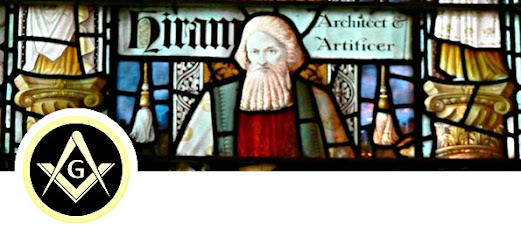
Articles les plus récents
LES SENTIERS D’HERMÈS







































